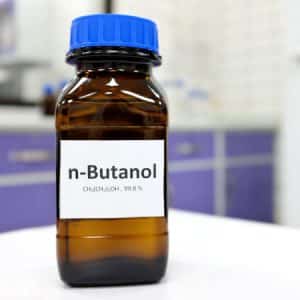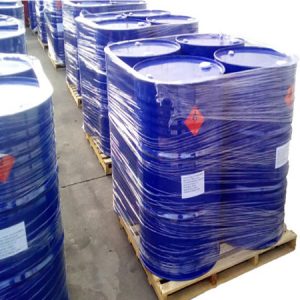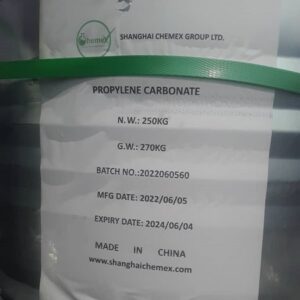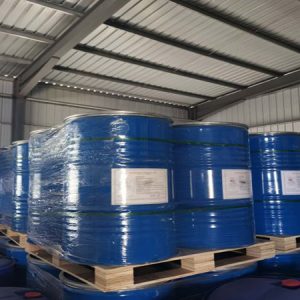Description
In the realm of industrial chemicals, n-Butanol stands out as a versatile compound with a wide range of applications. From its role as a solvent to its use in the production of various chemicals, n-Butanol plays a crucial role in several industries. This article delves into the depths of n-Butanol, exploring its uses, production methods, and environmental impact.
Understanding n-Butanol
n-Butanol, short for normal butanol, is a four-carbon alcohol characterized by its linear structure. It is a colorless liquid with a slightly sweet odor, making it distinguishable from its isomer, isobutanol. The chemical formula for n-Butanol is C₄H₉OH, and it is commonly referred to as n-butyl alcohol.
Uses of n-Butanol
Solvent Properties: One of the primary applications of n-Butanol is its use as a solvent. It exhibits excellent solvency for a variety of substances, making it valuable in the production of coatings, resins, and adhesives. The ability to dissolve a wide range of materials makes n-Butanol an ideal choice in the paint and coating industry, where it contributes to the formulation of high-quality finishes.
Chemical Intermediates: n-Butanol serves as a crucial intermediate in the synthesis of various chemicals. It is a key component in the production of butyl acrylate, a monomer used in the manufacturing of polymers and adhesives. Additionally, n-Butanol is employed in the synthesis of butyl acetate, which finds applications as a solvent in the production of lacquers and coatings.
Plasticizers: As a plasticizer, n-Butanol enhances the flexibility and durability of plastics. Its incorporation into plastic formulations helps improve their mechanical properties, making them more suitable for diverse applications. This includes the production of flexible PVC (polyvinyl chloride) products such as hoses, cables, and films.
Biofuel Production: With a growing emphasis on sustainable alternatives, n-Butanol has gained attention as a biofuel. Produced through microbial fermentation of biomass, bio-based n-Butanol offers a renewable and environmentally friendly alternative to traditional fossil fuels. Its use as a biofuel aligns with the global efforts to reduce greenhouse gas emissions and dependence on non-renewable resources.
Production of n-Butanol
Oxidation of n-Butane: One common method for industrial n-Butanol production involves the oxidation of n-butane. This process typically utilizes a metal oxide catalyst at elevated temperatures to convert n-butane into n-Butanol. While effective, this method requires careful control of reaction conditions to achieve optimal yields.
Fermentation: Microbial fermentation represents a sustainable approach to n-Butanol production. Certain bacteria, such as Clostridium species, are capable of fermenting sugars into n-Butanol. This bioprocess has garnered attention due to its potential for utilizing renewable feedstocks like agricultural residues and dedicated energy crops.
Propylene Oxide Route: Another route involves the reaction of propylene oxide with synthesis gas (a mixture of carbon monoxide and hydrogen) to produce n-Butanol. This method has the advantage of utilizing propylene oxide, an intermediate derived from petroleum, in the production process.
Environmental Impact
Biodegradability: n-Butanol exhibits favorable environmental characteristics, including biodegradability. This means that, when released into the environment, it can be broken down by natural processes, minimizing its impact on ecosystems. This property enhances the appeal of n-Butanol as a solvent and biofuel component, aligning with the growing demand for environmentally friendly alternatives.
Renewable Production: The use of microbial fermentation for n-Butanol production contributes to its eco-friendly profile. By relying on renewable feedstocks, such as agricultural residues, this approach reduces dependence on non-renewable resources and promotes sustainability in the chemical industry.
Reduced Greenhouse Gas Emissions: Bio-based n-Butanol as a biofuel offers a pathway to reduce greenhouse gas emissions. When used as a fuel, it releases carbon dioxide, but the carbon emitted is part of the natural carbon cycle, as it was absorbed by the plants during their growth. This closed carbon cycle mitigates the impact on atmospheric carbon levels compared to fossil fuel combustion.
Conclusion
In conclusion, n-Butanol stands as a versatile compound with diverse applications across industries. Its role as a solvent, chemical intermediate, plasticizer, and biofuel component highlights its adaptability and significance in various manufacturing processes. As the demand for sustainable solutions continues to grow, the environmentally friendly aspects of n-Butanol, including its biodegradability and renewable production methods, position it as a valuable player in the quest for greener alternatives in the chemical industry. As research and technology advance, n-Butanol is likely to play an even more pivotal role in shaping a sustainable and efficient future for industrial processes.






Reviews
There are no reviews yet.